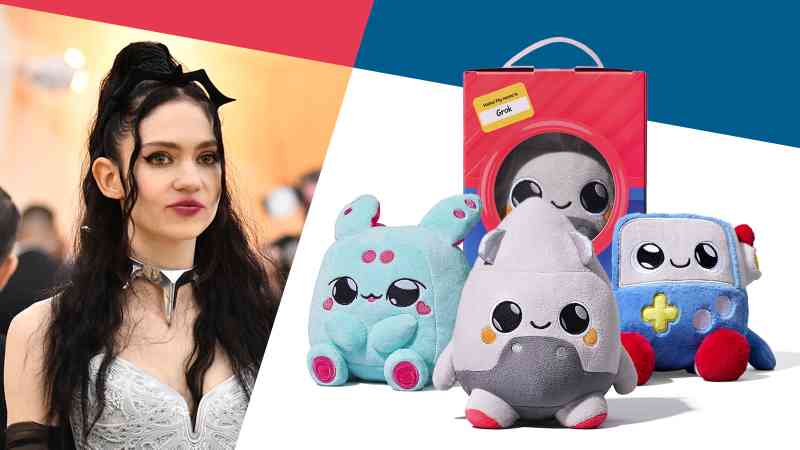Talking objects have long captured our imagination, from Mrs Potts, the singing teacup in Beauty and the Beast, to Woody, the adventure-seeking sheriff in Toy Story. With modern technology such as ChatGPT, this fantasy is rapidly becoming a reality as AI-powered robots or toys are used as educational tools or even as companions for children.
Last year the smart toy market grew at a rate of 18 per cent, increasing from $12.14 billion in 2022 to $13.92 billion in 2023, according to research from Contrive Datum Insights. It is projected to grow to $36.77 billion by 2030, driven primarily by rising awareness of smart toys and technology, particularly among the middle classes.
One company exploring this new age of children’s entertainment is Curio Interactive, a Silicon Valley-based start-up that has developed a fully interactive AI-powered “plush” toy called Grok. The rocket-shaped toy is voiced by Grimes, the Canadian musician and mother of three of Elon Musk’s children. She is also an investor in and adviser to the company.
Grok can answer questions, suggest and play games and in future will be able to form personalised relationships, according to Misha Sallee, who is the chief executive of Curio, which he co-founded with Sam Eaton. “The broader use case for AI toys is to populate the world with fun, safe, whimsical characters that are inspiring and creative,” he said.
The toy is customisable via an app, allowing parents to decide what topics Grok should talk about and to adjust it to their own belief systems. “Out of the box, when Grok arrives in your house he is extremely G-rated [suitable for children]. He is basically a talking encyclopaedia and he doesn’t know about political issues, violence or sex,” Sallee said. “Grok is programmed specifically to deflect these sorts of questions. We also have an app where you can add customisation because we want to put parents in the driver’s seat.”
The company is pitching the product as providing screen-free entertainment for children and Grimes said in a blog post on Curio’s website that it would be the first step towards “reducing screen time as much as humanly possible”.
Curio, which was established last year, has four full-time employees and several contractors in marketing and manufacturing. It holds the trademark on the name “Grok” and has no relationship to Musk’s AI start-up of the same name, which was launched last month.
The first Groks, each costing $99, will be shipped early this year and Curio is working on two additional characters, Gabbo and Grem, which will have slightly different personalities.
Talking toys are nothing new. The Furby and the Talk With Me Barbie, which could play several different pre-recorded phrases, have been around since the early 1990s. However, the new generation of smart toys use chatbot-style technology and OpenAI to create personalised interactions and lessons for children.
Many of the smart toys that exist already are geared towards educational purposes, such as the intelino smart train, which helps children to learn to code.
However, there are safety concerns, particularly around privacy and the impact of AI-enabled toys on children’s development and mental wellbeing, which remains unknown. Sallee said that Grok did not collect or store voice data, although it retains transcripts to comply with the federal Children’s Online Privacy Protection Act in the United States.
Ultimately, Grok is supposed to form a personalised relationship with children and to act as a companion, but how this will work and the impact this may have are still poorly understood, according to Sallee. “It’s something that we’re going to be super-careful about and mindful of as we’re building out the product experience,” he said. “At the moment it intentionally doesn’t store memory, so it is not a friend. It is more of an encyclopaedia that can talk.”
